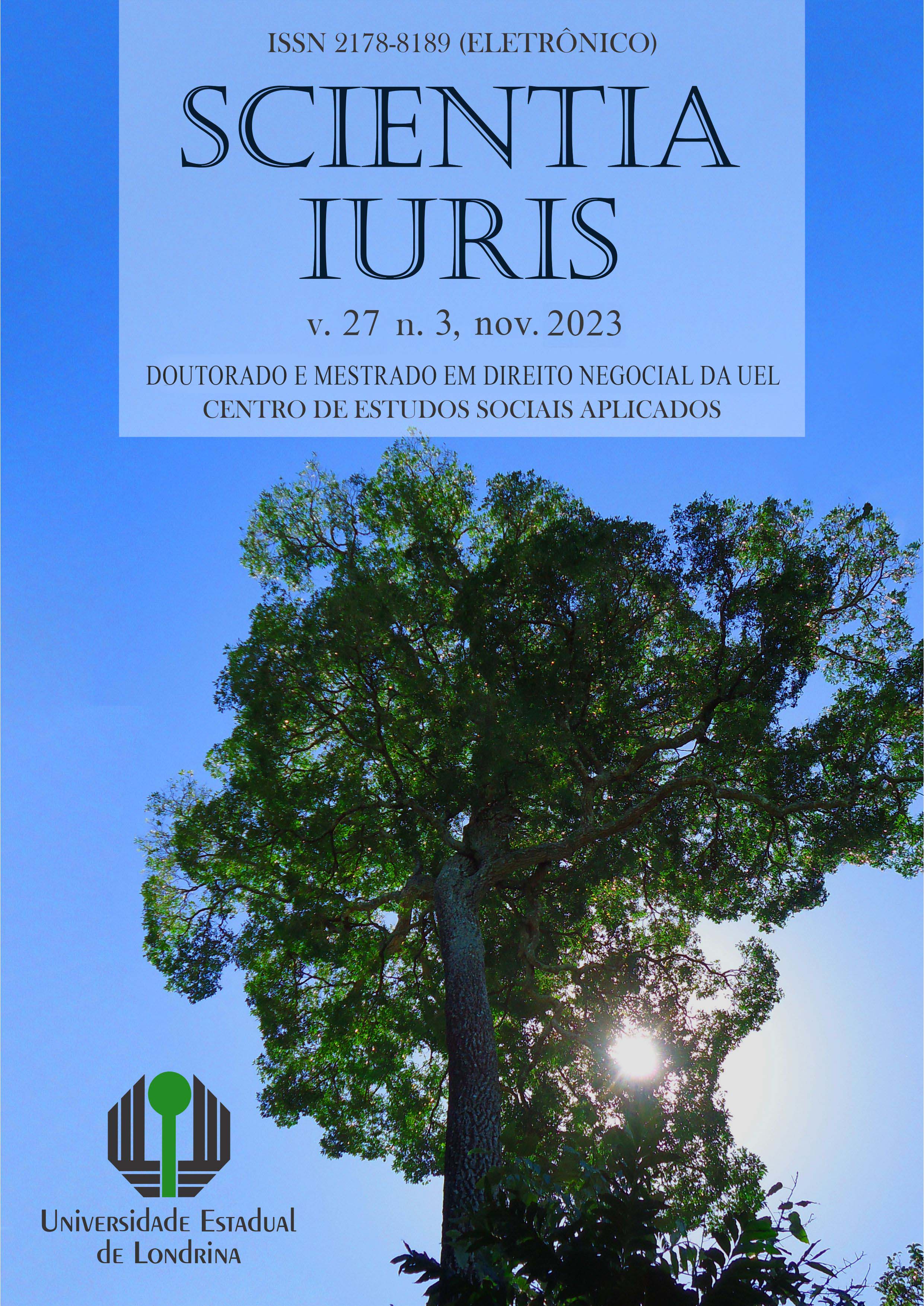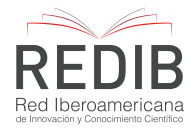RSE como instrumento de adequação do trabalho nas plataformas digitais à Agenda 2030 da ONU
DOI:
https://doi.org/10.5433/2178-8189.2023v27n3p171-187Palavras-chave:
Agenda 2030; gig economy; plataformas digitais; responsabilidade social; trabalho decente.Resumo
O presente estudo, por meio da pesquisa bibliográfica, analisou de que forma o conceito de responsabilidade social empresarial (RSE) poderia servir como instrumento de adequação do trabalho nas plataformas digitais das empresas que compõem a Gig Economy de forma a compatibilizá-lo com o alcance dos Objetivos de Desenvolvimento Sustentável (ODS) definidos pelas Nações Unidas na Agenda 2030, em particular o ODS-8, que busca a promoção global do “trabalho decente”. Destarte, a presente pesquisa encontrou robustos indícios de que a utilização extensiva dos instrumentos de regulamentação da RSE, como as “soft law” e as “hard law”, poderiam servir para exercer grande pressão econômico e social, de modo a compelir muitas empresas da Gig Economy a promoverem o “trabalho decente” como paradigma a todos os trabalhadores que laboram nas suas plataformas digitais, não por ideais altruístas, mas como condição primordial à continuidade e relevância de seus negócios na economia capitalista.
Downloads
Referências
EYE-OPENING Gig Economy Statistics For 2022. Velocity Global, Denver, 05 mai. 2022. Disponível em: <https://velocityglobal.com/blog/gig-economy-statistics/>. Acesso em 22 ago. 2022.
ALVARENGA, Rúbia Zanotelli de. Trabalho decente: direito humano e fundamental. Belo Horizonte: Editora Dialética, 2020.
ANDRADE, Fernanda Rodrigues Guimarães. Direitos humanos dos trabalhadores: uma análise da declaração da organização internacional do trabalho sobre princípios e direitos fundamentais no trabalho. Belo Horizonte: RTM, 2012.
ANTUNES, Ricardo; FILGUEIRAS, Vitor. Plataformas digitais, uberização do trabalho e regulação no capitalismo contemporâneo. Contracampo, Niterói, v. 39, n. 1, p. 27-43, abr./jul. 2020. DOI: https://doi.org/10.22409/contracampo.v39i1.38901
BARBOSA JUNIOR, Francisco de Assis. Gig Economy e contrato de emprego: aplicabilidade da legislação trabalhista aos vínculos de trabalho da nova economia. – 2. ed. – São Paulo: LTr, 2021.
BARZOTTO, Luciane Cardoso. Direitos humanos e trabalhadores: atividade normativa da Organização Internacional do Trabalho e os limites do Direito Internacional do Trabalho. Porto Alegre: Livraria do Advogado, 2007.
CARROLL, A., SHABANA, K. The business case for corporate social responsibility: A review of concepts, research and practice. International Journal of Management Reviews, 12 (1), p. 85-105, 2010. Disponível em: <https://www.researchgate.net/publication/228118692>. Acesso em: 02 jul. 2022. DOI: https://doi.org/10.1111/j.1468-2370.2009.00275.x
DALL'AGNOL, Philippe; CARMONA, Paulo A. Cavichioli. A regulamentação da responsabilidade social empresarial: entre a ortodoxia e heteronomia normativa. Prisma Jurídico, São Paulo, 20.2 (2021): p. 330-350. Disponível em: <https://doi.org/10.5585/prismaj.v20n2.20253>. Acesso em: 03 jun. 2022. DOI: https://doi.org/10.5585/prismaj.v20n2.20253
DIRETRIZES para responsabilidade social. (Nota de imprensa). Brasil: Sgs group. 2019. Disponível em: <https://www.sgsgroup.com.br/pt-br/news/2019/07/iso-26000-responsabilidade-social>. Acesso em: 15 ago. 2022.
DORSSEMONT, Filip. et al. The charter of fundamental rights of the European union and the employment relation. Londres: Bloomsbury Publishing, 2019. DOI: https://doi.org/10.5040/9781509922680
FRIEDMAN, M. The social responsibility of business is to increase its profits. The New York Times Magazine, Nova Iorque, 13 set. 1970. Disponível em: <https://www.nytimes.com/1970/09/13/archives/a-friedman-doctrine-the-social-responsibility-of-business-is-to.html>. Acesso em: 02 ago. 2022.
GONÇALVES, Luísa Cortat Simonetti; PEDRA, Adriano Sant’Ana. Deveres internacionais e obrigações socioambientais para empresas multi e transnacionais. Revista de Direito Internacional, Brasília, v. 17, n. 3, p.529, 2020. DOI: https://doi.org/10.5102/rdi.v17i3.6965
HOBSBAWM, Eric J. Da revolução industrial inglesa ao Imperialismo. 6. ed. Rio de Janeiro: Forense Universitária, 2011.
INFORMAÇÃO Europeia ao cidadão. EUROCID [online], 2021. Disponível em: <https://eurocid.mne.gov.pt/>. Acesso em: 29 de jul. 2022.
KELLER, Werner. O direito ao trabalho como direito fundamental: instrumentos de efetividade. 2. ed. – São Paulo: LTr, 2016.
KLIKSBERG, Bernardo. Responsabilidad social empresarial: ¿moda o demanda social. Madrid: Fundación Carolina de España, 2005. Disponível em: <https://www.econo.unlp.edu.ar/frontend/media/88/10988/96ec54036dada3b4ed47f8dcb0c92bbd.pdf>. Acesso em: 20 ago. 2022.
KLIKSBERG, Bernardo. Ética para empresários: por qué las empresas y los países ganan con la responsabilidad social empresarial. – 1. ed. – Buenos Aires: Ediciones Ética y Economía, Distal, 2013.
LOPES, Marta Maria Cordeiro. A Influência dos Stakeholders na Responsabilidade Social Empresarial Estratégica. 336 f. Tese (Doutorado em Marketing) - Instituto Universitário de Lisboa, Lisboa, 2015. Disponível em: <https://repositorio.iscte-iul.pt/bitstream/10071/10038/1/Tese_Out_2015_Final_Juri.pdf>. Acesso em: 03 ago. 2022.
MANNRICH, Nelson. Futuro do direito do trabalho: no Brasil e no Mundo. Revista LTr, São Paulo, dez. 2017.
MULCAHY, Diane. The gig economy: the complete guide to getting better work, taking more time off, and financing the life you want. New York: AMACOM, 2016. Disponível em: <https://books.google.com.br/books?id=mP3nDAAAQBAJ&lpg>. Acesso em: 13 ago. 2022.
OLIVEIRA, Lourival José de. Os princípios do direito do trabalho frente ao avanço tecnológico. In: FINCATO, Denise Pies; VIDALETTI, Leilane Piovesani (Org.). Novas tecnologias, processo e relações de trabalho II. Curitiba: CRV, 2017.
O Turco. In. WIKIPÉDIA: a enciclopédia livre. Disponível em: <https://pt.wikipedia.org/wiki/O_Turco>. Acesso em: 21 ago. 2022.
ORGANIZAÇÃO DAS NAÇÕES UNIDAS (ONU). Declaração Universal dos
Direitos Humanos. Paris, 1948. Disponível em: . Acesso em: 05 ago. 2022.
ORGANIZAÇÃO INTERNACIONAL DO TRABALHO (OIT). História da OIT. [online], c2022. Disponível em: <https://www.ilo.org/brasilia/conheca-a-oit/hist%C3%B3ria/lang--pt/index.htm>. Acesso em: Acesso em: 22 jun. 2022.
MOREIRA, Teresa Coelho. Algumas questões sobre o trabalho 4.0. Revista eletrônica do Tribunal Regional do Trabalho da 9ª Região, Curitiba, v. 9, n. 86, p. 152-167, mar. 2020. Disponível em: <https://hdl.handle.net/20.500.12178/170751>. Acesso em: 6 ago. 2022.
PLATAFORMAS auxiliam quem busca trabalho autônomo no país. O Globo [online], São Paulo, 05 ago. 2022. Economia. Disponível em: <http://www.agenciaoglobo.com.br/dinonews/Default.aspx?idnot=94913&tit>. Acesso em 22 ago. 2022.
PRASSL, Jeremias. Humans as a service: the promise and perils of work in the gig economy. Oxford: Oxford University Press, 2018. DOI: https://doi.org/10.1093/oso/9780198797012.001.0001
SILVA, Eduardo Aguiar. et. al. Investimentos em Ações de Responsabilidade Social no Brasil: uma Análise Quantitativa. Revista de Administração, Sociedade e Inovação, Rio de Janeiro, v. 1 n. 1 (2015): jul-dez. Disponível em: <https://doi.org/10.20401/rasi.1.1.21>. Acesso em: 25 ago. 2022. DOI: https://doi.org/10.20401/rasi.1.1.21
SILVA, Marcos Alves da; KNOERR, Viviane Coêlho de Séllos. Responsabilidade social das empresas e subcidadania: pautas para uma reflexão de índole constitucional. Revista Juridica, [S.l.], Curitiba, v. 2, n. 31, p. 435-453, ago. 2013. Disponível em: <http://revista.unicuritiba.edu.br/index.php/RevJur/article/view/611>. Acesso em: 03 jul. 2022.
SINICKI, Adam. Thriving in the Gig Economy: Freelancing Online for Tech Professionals and Entrepreneurs. Bicester: Apress Media, 2019. Disponível em: <https://www.amazon.com.br/dp/1484240898/ref=rdr_kindle_ext_tmb>. Acesso em: 13 ago. 2022. DOI: https://doi.org/10.1007/978-1-4842-4090-8
STOCKER, Fabricio. et al. Teoria de redes de influências de stakeholders: uma abordagem revisitada. Cadernos EBAPE.BR, Rio de Janeiro, v. 17, Edição Especial, nov. 2019, p. 673-688. ISSN 1679-3951. Disponível em: <https://doi.org/10.1590/1679-395176683>. Acesso em: 03 ago. 2022. DOI: https://doi.org/10.1590/1679-395176683
TIROLE, Jean. Economia do bem comum. Tradução de André Telles. 1.ed. Rio de Janeiro: Zahar, 2020.
WINN, Joss. Labour is not a commodity: mapping out assumptions on “labour” in the co-operative movement. Josswinn.org [online], 2014. Disponível em: <https://josswinn.org/2014/11/27/labour-is-not-a-commodity-mapping-out-assumptions-on-labour-in-the-co-operative-movement/>. Acesso em: 19 ago. 2022.
Downloads
Publicado
Como Citar
Edição
Seção
Licença
Copyright (c) 2023 Nelson Sanchez Rosa, Lucio Faccio Dorneles, Guilherme Cardoso Antunes da Cunha

Este trabalho está licenciado sob uma licença Creative Commons Attribution 4.0 International License.
Autores que publicam nesta revista concordam com os seguintes termos:
a) Os(as) autores(as) mantêm os direitos autorais e concedem à revista o direito de primeira publicação, sendo o trabalho simultaneamente licenciado sob a Creative Commons Atribuição 4.0 Internacional, permitido o compartilhamento do trabalho com reconhecimento da autoria do trabalho e publicação inicial nesta revista.
b) Os(as) autores(as) têm autorização para assumir contratos adicionais separadamente, para distribuição não-exclusiva da versão do trabalho publicada nesta revista (ex.: publicar em repositório institucional ou como capítulo de livro), com reconhecimento de autoria e publicação inicial nesta revista.
c) Autores têm permissão e são estimulados a publicar e distribuir seu trabalho em linha (ex.: em repositórios institucionais ou na sua página pessoal) após o processo editorial, já que isso pode gerar alterações produtivas, bem como aumentar o impacto e a citação do trabalho publicado (Veja O Efeito do Acesso Livre).
d) Os(as) autores(as) dos trabalhos aprovados autorizam a revista a, após a publicação, ceder seu conteúdo para reprodução em indexadores de conteúdo, bibliotecas virtuais e similares.
e) Os(as) autores(as) assumem que os textos submetidos à publicação são de sua criação original, responsabilizando-se inteiramente por seu conteúdo em caso de eventual impugnação por parte de terceiros.
A revista se reserva o direito de efetuar, nos originais, alterações de ordem normativa, ortográfica e gramatical, com vistas a manter o padrão culto da língua e a credibilidade do veículo. Respeitará, no entanto, o estilo de escrever dos autores. Alterações, correções ou sugestões de ordem conceitual serão encaminhadas aos autores, quando necessário. Nesses casos, os artigos, depois de adequados, deverão ser submetidos a nova apreciação. As provas finais não serão encaminhadas aos autores. Os trabalhos publicados passam a ser propriedade da revista, ficando sua reimpressão total ou parcial sujeita a autorização expressa da revista. Em todas as citações posteriores, deverá ser consignada a fonte original de publicação, no caso a Scientia Iuris. As opiniões emitidas pelos autores dos artigos são de sua exclusiva responsabilidade.


















